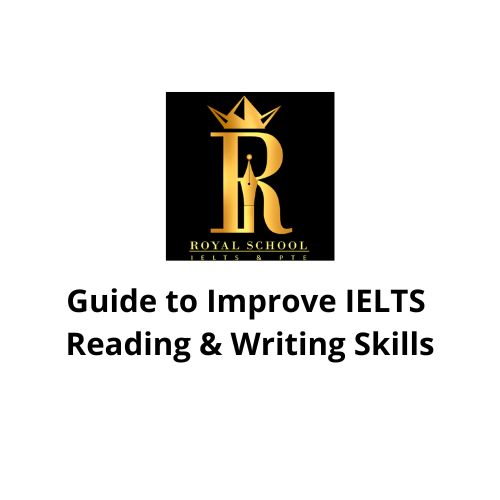
We live in a world ruled by the Internet. This has dramatically changed the way people and professionals connect. Webinars are one of the millions of features the internet has to offer. This essential technology has made the work of educators and students much easier.
In an effort to bring students and aspiring lecturers of similar streams and interests together for in-depth knowledge sessions with experienced professional educators, we host a weekly webinar at Royal School. In this remarkable initiative, Royal School as an educational platform has associated with IELTS trainer from Sirsa, Vinod Sir to host a webinar on The Best Guide to Improve Your Reading and Writing Skills. We are Best IELTS Institute in Sirsa.
According to Vinod Sir, reading for substance and main ideas; understanding the inferences, understanding the implied meaning and most importantly recognizing the writer’s point of view, attitudes, and purpose are the primary maxims for scoring well in the IELTS Reading section as this particular section is about being able to decode the meaning of a written string.
Top tips for the IELTS Writing section
The writing section is about the ability to encode ideas and concepts into written form, Vinod Sir said. Here are some quick tips that can help you qualify for IELTS.
Timing:
Time in the IELTS exam hall is severely limited. That’s why it’s important to use your time wisely. For this, the student must read the questions very carefully and plan the essay after thorough brainstorming. One should not spend more than 15 minutes on task 1 and 45 minutes on task 2.
Planning
Proper planning is extremely important to perform well in the exam. Therefore, it is essential to write down examples in terms of bullet points. If this becomes a habit, it can help students retain facts in their minds for long periods of time. As a result, they remember better when writing the exam.
Accuracy
Accuracy is the key to doing well in the exam. That’s why it’s important to check for spelling, grammar, and other punctuation errors.
Word count
In IELTS, an individual cannot write any number of words as desired. One must adhere to a set word count. IELTS experts recommend writing at least 150 words in Task 1 and 250 words in Task 2, in case the test taker wants a Band 7 score.
Structure
The use of clear structures is extremely important such as first, secondly , on the other hand for example summarize , for example conclude with , in conclusion etc.
Depth
Using clear examples and marking sentences with – for example, for example, etc.
Use examples
Something you have read, a friend’s experience or your own, examples from another country or your country for best results.
Spelling
It is essential that the student ensures that all words are spelled correctly. No one wants to lose unnecessary marks for bad spelling.
Assessment
The best way to judge the quality of any writing is to self-review. It is recommended that students read their essays on their own. This will give them a better understanding of the meaning of their essays and whether facts need to be adjusted or additional details added.
Correct
Proofreading is like a final check. It ensures that no mistakes are made from major to minor. Overall, this improves accuracy as it is one of the most important guidelines for those looking to reach band 7 or higher.
All in all, the session proved to be very beneficial for both students and tutors as they got the most out of the discussion and also got an opportunity to clear their doubts while interacting directly with Vinod Sir, an IELTS expert. A remarkable number of IELTS students, both academic and general, registered from all over India to participate in this real-time online interaction.